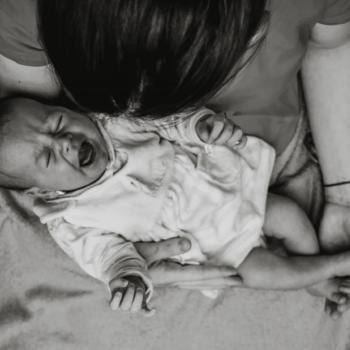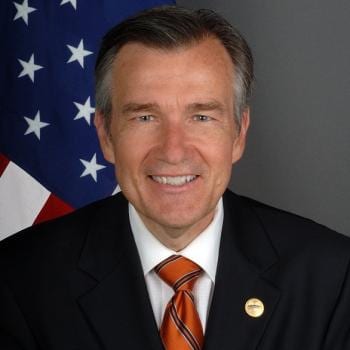The Barbara Johnson story continues to stir debate — including this item from the Washington Post about when communion should be denied:
Some people believe Catholic teaching either required the Gaithersburgh priest to deny the woman Communion – or at the least gave him the right to – while others believe the opposite. Both sides cite canon law and high-level teachings and Scripture
There are so many phrases that need to be parsed and defined: What is a mortal sin? What does it mean to be alienated from God? What is the pastoral thing to do when a priest is confronted with someone apparently violating a church teaching? What is the right kind of respect a priest should have for a Catholic’s free will and conscience?
First, the nuts and bolts. Catholicism teaches that, during Communion, Catholics receive the literal body and blood of Christ in the form of wafers and wine; the church teaches that in this moment, Catholics become transformed so they can be more Christ-like.
People “in a state of grave sin” are not supposed to take Communion, said the Rev. Thomas Reese, senior fellow at the Woodstock Theological Center. “But how grave does a sin have to be to cut you completely off from God?,” Reese asked. “Some would say any sex (heterosexual or homosexual) outside of a valid marriage is a grave sin. Others would argue it is not so grave as to cut a sinner completely off from God.”
Who decides how a grave sin is defined? The U.S. bishops in 2006, as the country debated whether pro-choice politicians could receive Communion, approved a document that appeared to list situations that violate church teaching and make someone ineligible for Communion. They included everything from “sexual activity outside the bonds of a valid marriage” to harboring hatred of others, missing Mass on Sundays “without serious reason” and stealing.
People in such states shouldn’t present themselves for Communion, the document said, before becoming more broad. A footnote said the document was not intended to be a specific list, and instead was meant to encourage Catholics to set a high bar for their personal conduct.
Catholics, it said, who have “honest doubt and confusion” about some church teachings “are welcome to partake of holy Communion, as long as they are prayerfully and honestly striving to understand the truth of what the church professes and are taking appropriate steps to resolve their confusion and doubt.”
“There is a lot of talk about what is mortal sin. It means to be totally alienated from God. Many theologians say this is hard to do,” Reese said…
…The Rev. Tom Richstatter, a liturgist at St. Meinrad Seminary in Indiana, said the question of who takes Communion is “about your understanding of what God is, and what the Eucharist is,” he said, using the word that means both the Communion rite and the wafer and wine. “For some priests, law and rules are the way to safeguard that, and others feel compassion in Jesus is the ultimate deciding factor.”
The vast majority of American bishops oppose denying Communion, at least to politicians. When voting on it in 2004, in the context of pro-choice politicians, three times as many bishops said they opposed it than those who favored it. That year they issued a public position, by a vote of 183-6, saying it should be up to the individual bishop to decide whether to give pro-choice politicians Communion.
The policy in the Archdiocese of Washington, as established by Cardinal Donald Wuerl, is not to withhold Communion and for priests to privately counsel Catholics who they believe to be wrestling with violations of church teaching.
Past president of the U.S. Conference of Catholic Bishops Cardinal Francis George has taken a similar position, as has recent Los Angeles archbishop Cardinal Roger Mahony. He said during the so-called “wafer wars” that his “archdiocese will continue to follow church teaching which places the duty on each Catholic to examine their consciences as to their worthiness to receive holy Communion .. That is not the role of the person distributing the body and blood of Christ.”











